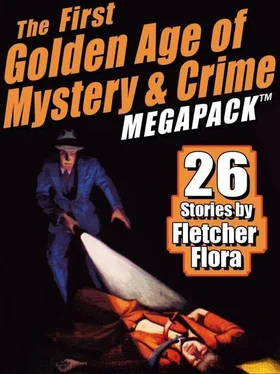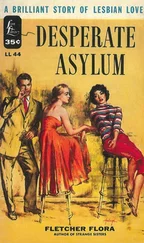“Are you so devoted to me, then?”
“I would do a great deal more if more were needed.”
“How much more, Clara? Would you die for me?”
“It takes courage to die. If I had the courage, I would die for you.”
“Well, you are committed to enough as it is. I prefer you alive.”
“Thank you, Neva.”
“Has Mrs. Kelsey gone yet?”
“She’s just finishing in the kitchen. She’ll be leaving in a few minutes.”
“Good. Make sure the back door is locked behind her.”
“Don’t worry. I’ll make sure. Shall I remind you when it is a quarter to nine?”
“It won’t be necessary. I’ll not fail to watch the time.”
It was then eight. Turning away, Clara left the room. Neva watched her go. From the shining goblet which she had lifted from the tray beside her, the bouquet of the brandy drifted up to her and seeped into her head. She raised the glass and tilted a little of the brandy into her mouth. Don Quixote’s mad dream, diminishing on the sound of a mellow horn, was interrupted by the click of automatic mechanism and ensuing silence. Neva sat still, draining her goblet by sips in the silence, and then she set it aside, got up and started the latter half of the dream. Returning to the sofa, she poured more brandy and sat down. Time passed. Don Quixote floated down the Ebro in an enchanted boat. Mrs. Kelsey, her kitchen clean, was surely gone. Somewhere near was Clara, and in the library was Dwight, napping and waking and reading on an island of light in a sea of shadows. They were alone in the house, she and Clara and Dwight, and it was eight-thirty. His mad dream done, Don Quixote died slowly to the sad, sane sound of strings.
When Neva looked at her watch again, it was seventeen minutes till nine. She sat without moving, holding her arm bent at a right angle across her breasts, staring steadily at the face of the watch. The hour and minute hands crept imperceptibly. The sweep hand, measuring the swift flight of seconds, rushed apace around the dial. Once. Twice. At a quarter to nine precisely, as if a second or a minute soon or late would somehow be disastrous, she stood up and walked across the room and into the hall. Clara was standing there, across the hall at the foot of the stairs, and may have been waiting there in silence, for all that Neva knew or could guess, for most of an hour.
“If Martin Crandell arrives while I am in the library,” Neva said, “show him into the living room to wait. Meanwhile, I will do what must be done. Wish me luck, Clara.”
“I wish you luck,” Clara said.
Neva walked down the hall to the library door. She paused for a moment outside, a hand on the knob, her head slightly bowed in an attitude of listening, and then she turned the knob and opened the door and slipped into the room, closing the door quietly behind her. Silence. In the silence, nothing moved. There was the massive leather chair, and there in the chair was Dwight. His head had fallen forward until his chin touched his chest. His glasses had ridden down the bridge of his nose and clung precariously to the tip. In his lap, still held open by a hand that rested flat on the pages across the fold, was the thick volume he had been reading before he fell asleep. The pages, Neva noticed with a sharpened awareness of details, had very fine print and wide margins and the faded, brittle look of age. She watched and listened. She could detect the merest movement of his chest, the shallow pumping of his lungs, and after a moment she could hear, hardly more audible than a drift of smoke, the whisper of his breath between his lips, closer to death than to life.
Hurry. Hurry now. But hurry, remember, with caution .
She knew from experience that Dwight in his naps slept lightly in the dim twilight just below the surface of consciousness, and so, although the pile of the carpet was thick beneath her feet, she stooped over, standing first on one leg and then the other, and removed her shoes. Leaving the shoes by the door, she walked swiftly and directly, without discernible sound, to Dwight’s desk beside the draped windows a little beyond and behind the chair in which he slept. She opened the top drawer to the right of the kneehole, and there was the revolver, just as she expected, where Dwight had always kept it.
She knew, on the whole, very little about revolvers, and she had no notion of the caliber of this one, but she knew that Dwight kept it loaded, even though she had never known him to fire it, because it gave him, apparently, a sense of security. Taking it from the drawer, she made sure the bullets were in place, and then, quiet as a kitten in her stocking feet, she turned and walked to Dwight’s chair and around it from the rear and knelt on one knee on the floor at his right side. He did not move. She could hear clearly now the sibilant sound of his shallow breathing. Holding the revolver so that it just touched the fabric of his jacket, the snub barrel angled slightly up between a pair of ribs, she shot him in the heart.
She stood up and stepped back and watched him die. Afterward, swiftly again, she dropped the revolver and grasped him by the legs between the ankles and the knees and hauled him out of his chair onto the floor and across the floor to a position approximately midway between the chair and the desk. She returned to the chair and picked up the revolver. Lacking a handkerchief, she held the revolver in a fold of her skirt and scrubbed it clean of fingerprints. Still holding the revolver in the fold of her skirt, her skirt raised to her waist, she went back to the body and released the revolver to let it fall onto the floor near the right hand. On her knees, carefully, she took the hand and wrapped the fingers around the butt of the revolver, drawing them off afterward across the butt so as to smudge the prints slightly. Then, standing, with the toe tips of one foot she nudged the revolver away from the body into a position where, being dropped, it might have naturally fallen.
There. It was done. The worst was done. Standing there beside Dwight’s body, her eyes closed and lowered in anomalous effect of obscene prayer, she suffered, in the brief suspension of action between what had been accomplished and what remained to be done, a quite genuine feeling of regret. She had killed in exigency without compunction but not without pity, and she would have preferred it otherwise. She would have chosen, if she could, to have him live out his days in his own way, dull and oppressive to her as his way had been, and to see him die in his bed in his own good time, which would not have been, at the longest, very long. But never mind. She had no choice. Or she had been forced, rather, to a choice she would not willingly have made. Now there was more to do, and little enough time, surely, to do it.
Methodically, in the immediate area surrounding the body, she began to create signs of a struggle. She overturned a table lamp. She pushed askew the table on which it had sat. She swept a brass ashtray onto the floor. She was careful not to overdo the scene. Dwight, attacked, could have managed no more than token resistance.
The scene set, she went to the drapes and parted them and unlocked a sliding glass door that opened onto a terrace outside. She opened the door a couple of feet and left it open, permitting the drapes to close again across it. Her fingerprints were of no concern. Her own would be expected, and it would be assumed that anyone fleeing this way in guilt would take sufficient care to leave none. From the door to the terrace, she crossed directly to the door to the hall. She looked at her watch. It was three minutes until nine. It had taken her about ten minutes to murder her husband and to accomplish the other necessary things. She picked, up her shoes and put them on, standing, as before, first on one foot and then the other. Opening the door, she went put and: walked down the hall to the living room. Clara was waiting there, standing just inside the entrance, her eyes shining, her lips slightly parted, her breasts rising and falling, in a measured cadence of leashed excitement.
Читать дальше












